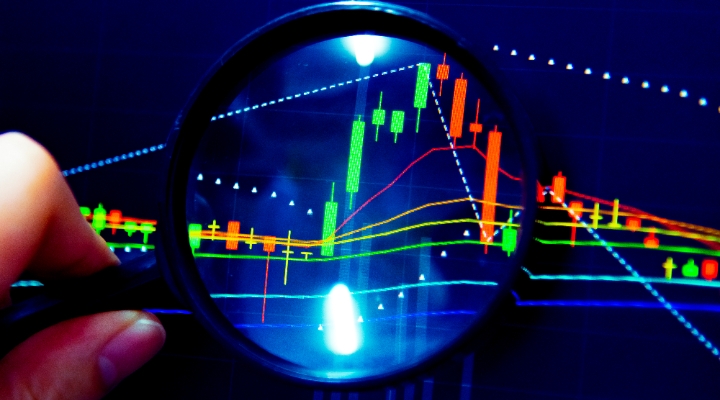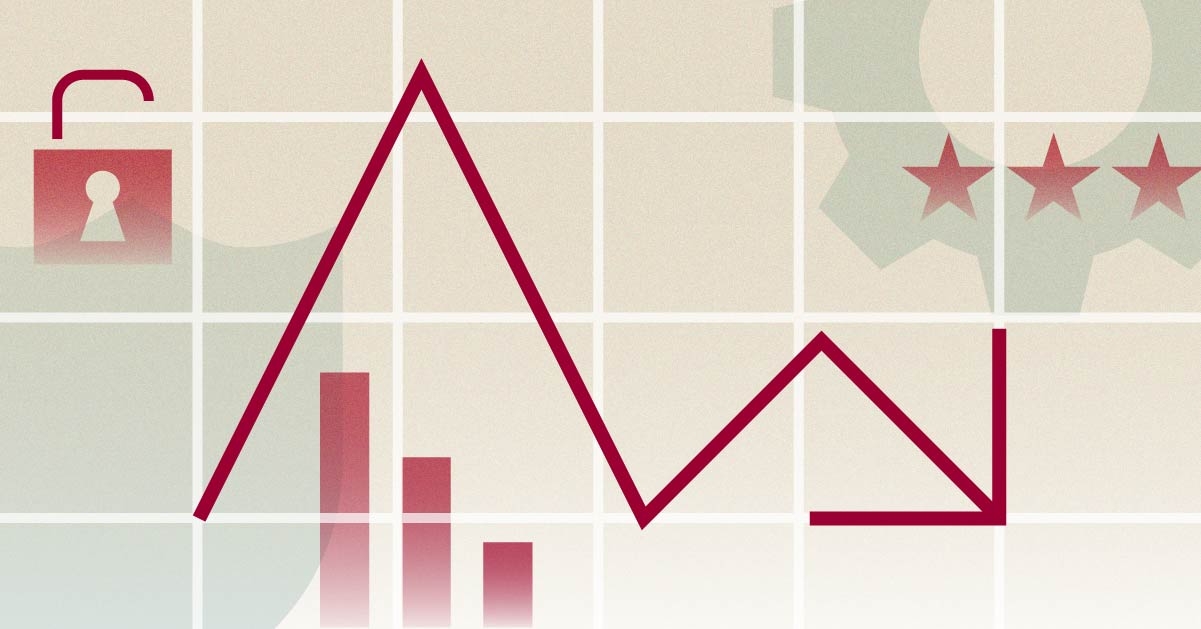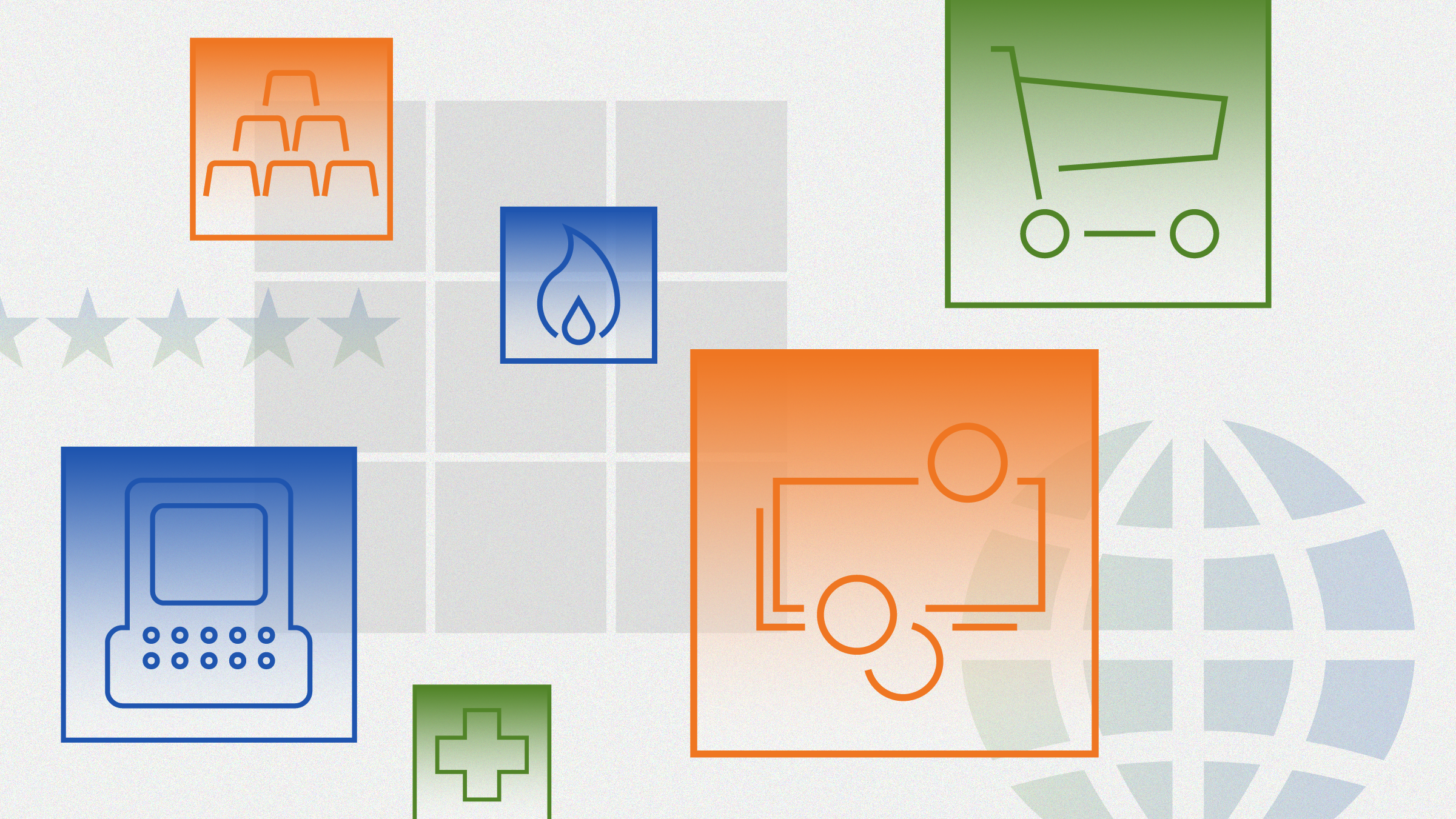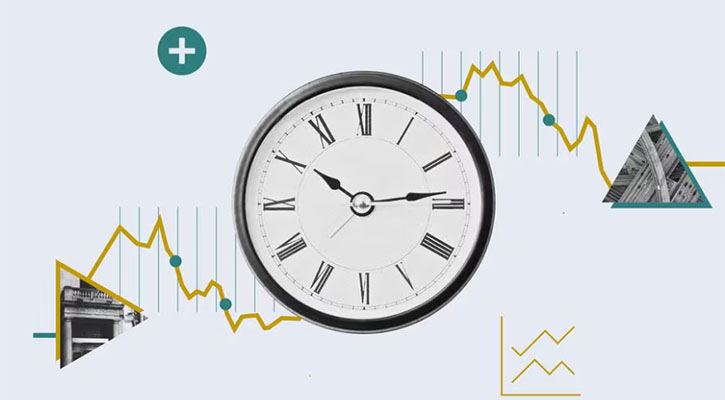
AI has been the biggest talking point in equity markets for some time now, accounting for something like 80% of flows into thematic funds. Investor exuberance has been duly rewarded, with AI the best performing theme for the last 18 months.
But has earnings season exposed any weaknesses in this narrative? The short answer is no. Core AI plays like Microsoft (MSFT) and Nvidia (NVDA) have been performing well. Although Nvidia has yet to report numbers, Microsoft delivered revenues up 17% year on year, with Azure, its core cloud computing platform, delivering growth of almost twice this level.
When valuations and expectations are sky high, any bad news can shake investors’ confidence. The Dutch darling ASML (ASML), which manufactures the machines that make semiconductors and trades on a P/E ratio of close to 50 times, reported slightly weaker orders than expected recently. This caused investors to question the outlook for chip manufacturers. This in turn caused a sell-off in chip names like Arm Holdings (ARM), which fell by as much as 20%. Although share prices have since recovered at least some of these falls, questions remain around names like Arm, which we believe to be heavily overvalued.
Defence Spending Story Can Run for Years
Although earnings season was quite mixed, defence firms almost unanimously reported strong results, particularly those European firms with healthy exposure to the Ukraine war. Book-to-bill ratios – a ratio of orders to units shipped – for key European firms is now solidly above 1. Some investors may be sceptical how long this strong run in defence spending will continue for, but we believe it is a medium-term tailwind at the very least, for two reasons:
• European countries have invested heavily in backing their Ukrainian allies, depleting their stocks of munitions in the process. For many countries like Germany, it could take close to a decade to restock, and that is not even accounting for the likelihood that the war may continue for some years.
• In signing up to NATO, members committed to spending 2% of their annual GDP on defence. Over half of NATO members however have been serially underspending, including European powerhouses like France and Germany. With global conflict escalating in the last years, and presidential hopeful Donald Trump warning that he will not support underspending members in the event of an attack, members have increased motivation to increase spending. We believe this rise will support strong revenue growth for defence manufacturers for years to come.
Book-to-Bill Ratios for European Defence Stocks
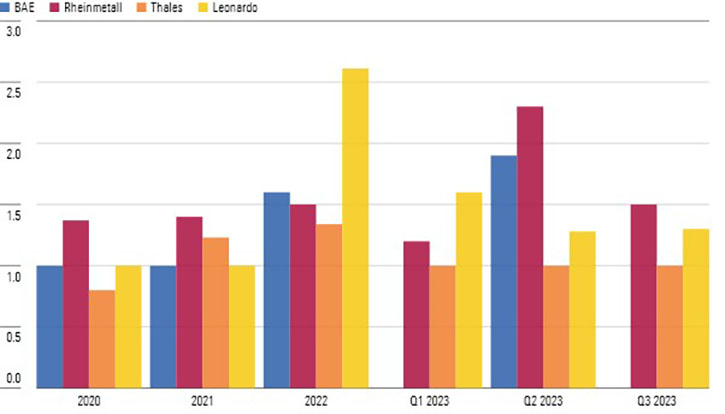
Is the Worst Over for Consumer Firms?
The effects of high interest rates and 18 months of elevated inflation are taking their toll on businesses, particularly those in the consumer space that are dealing with increasingly cash-strapped customers. Staples firms like Kraft-Heinz (KHC) and Reckitt Benckiser (RKT), owner of brands such as Durex and Nurofen, are reporting decent increases in revenues, but almost of all is this is based on price increases, with consumers actually buying fewer goods year on year.
High interest rates specifically are weighing on sales of large consumer purchases. Motorbike manufacturer Harley Davidson recently reported falling sales. The increased cost of financing is one reason, with consumers cutting back on purchases like this once they see the cost of actually financing it.
The travails of the consumer sector extend further though, even to luxury. This sector has been held-up in the past as pretty much indestructible, given the price inelastic nature of luxury goods, owing to the purchasing power of the wealthy even in times of economic hardship. Luxury consumption, which peaked during the pandemic, as consumers were stuck indoors with money to spend, has since declined, with this trend continuing into 2024. This message has been reaffirmed in recent earnings reports by some of the heavy hitters in the space including LVMH (MC) and Burberry (BRBY).
The good news for consumer firms generally is that the situation should improve as the year progresses. Inflation has fallen across western nations from its 2022 peaks, so lower commodity prices reduce the need to push up prices on a quarterly basis. This should allow many consumer firms to focus on firming up their operating margins, rather than worrying about topline growth. And the major central banks are finally contemplating interest rate cuts, with the ECB likely to cut as early as next month. Of course, this will take time to filter down to consumers, but at least we are moving in the right direction.
Michael Field is European Market Strategist at Morningstar










